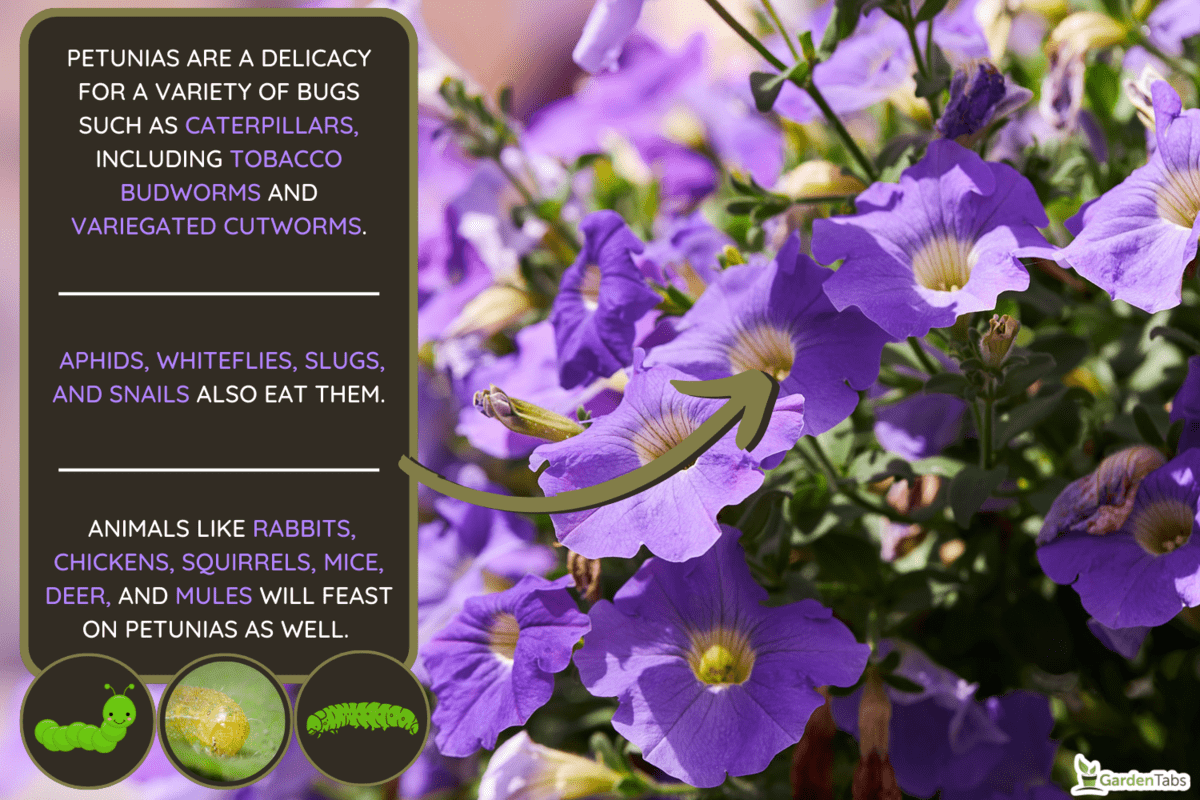Petunias, with their lush blooms, vibrant colors and inviting fragrance, draw attention to themselves – though not always in a good way! A gardener’s delight and fairly easy to maintain, they can become home to uninvited guests! If you grow petunias and have noticed holes in the leaves or stems without blossoms, you may be wondering what is eating your petunias?
Petunias are a delicacy for a variety of bugs such as caterpillars, including tobacco budworms and variegated cutworms. Aphids, whiteflies, slugs, and snails also eat them. Animals like rabbits, chickens, squirrels, mice, deer, and mules will feast on petunias as well. However, there are natural and safe ways to stop this from happening to your plants.
Now that you know there are a variety of creatures that eat petunias, let’s take a closer look at this in more detail below. We will discuss ways to prevent this as well as how to stop it once it occurs. We will also review safe, natural ways to control these pests without harming the environment.
So, if you’re ready to learn more about what is eating your petunias and what to do about it, then please read onward!
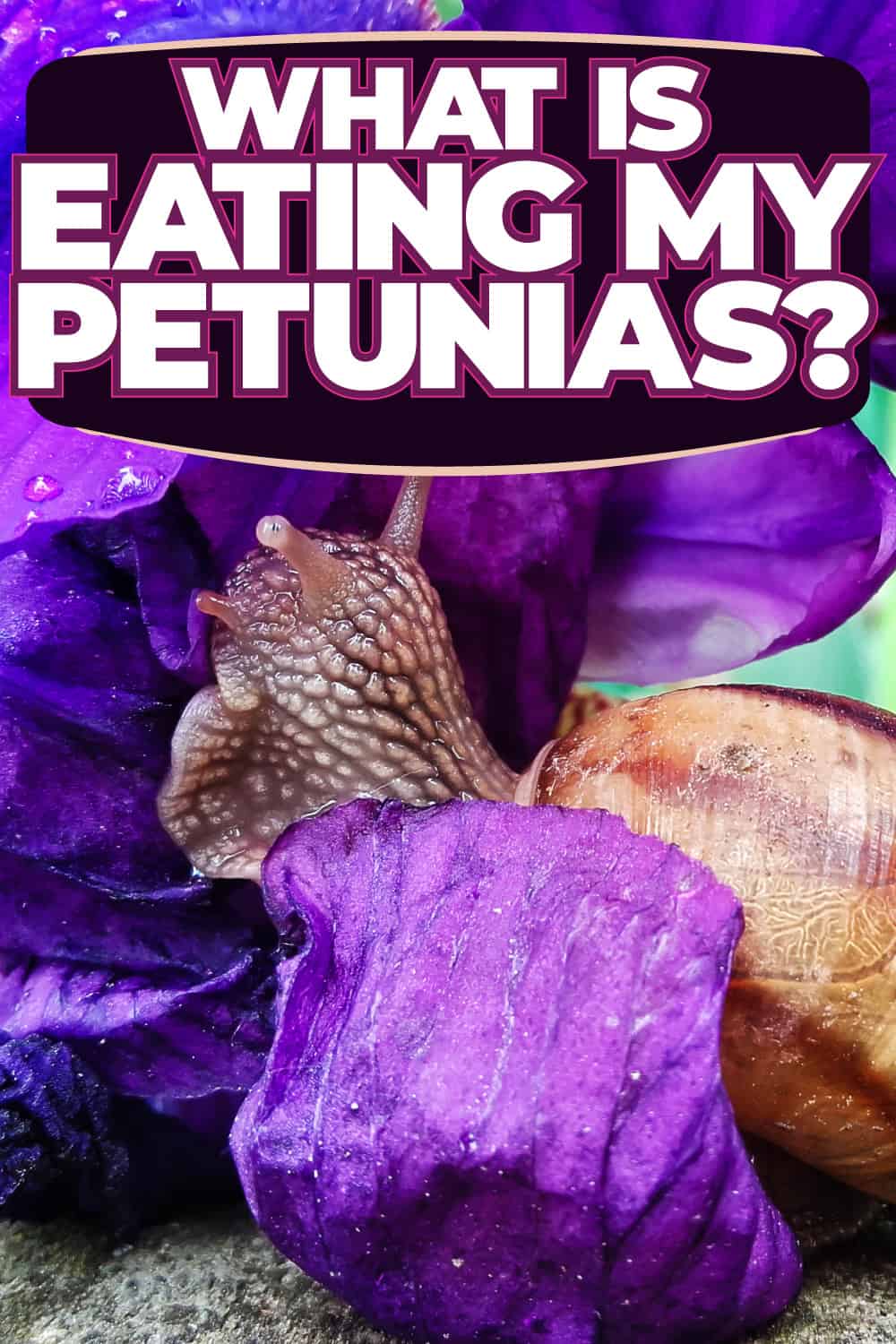
What Insects are Eating My Petunias?
Petunias are a delicious buffet for a host of pests, including caterpillars, including tobacco budworms and variegated cutworms. Aphids, whiteflies, slugs, and snails also eat them. There are a lot of options on how to deal with these troublesome pests.
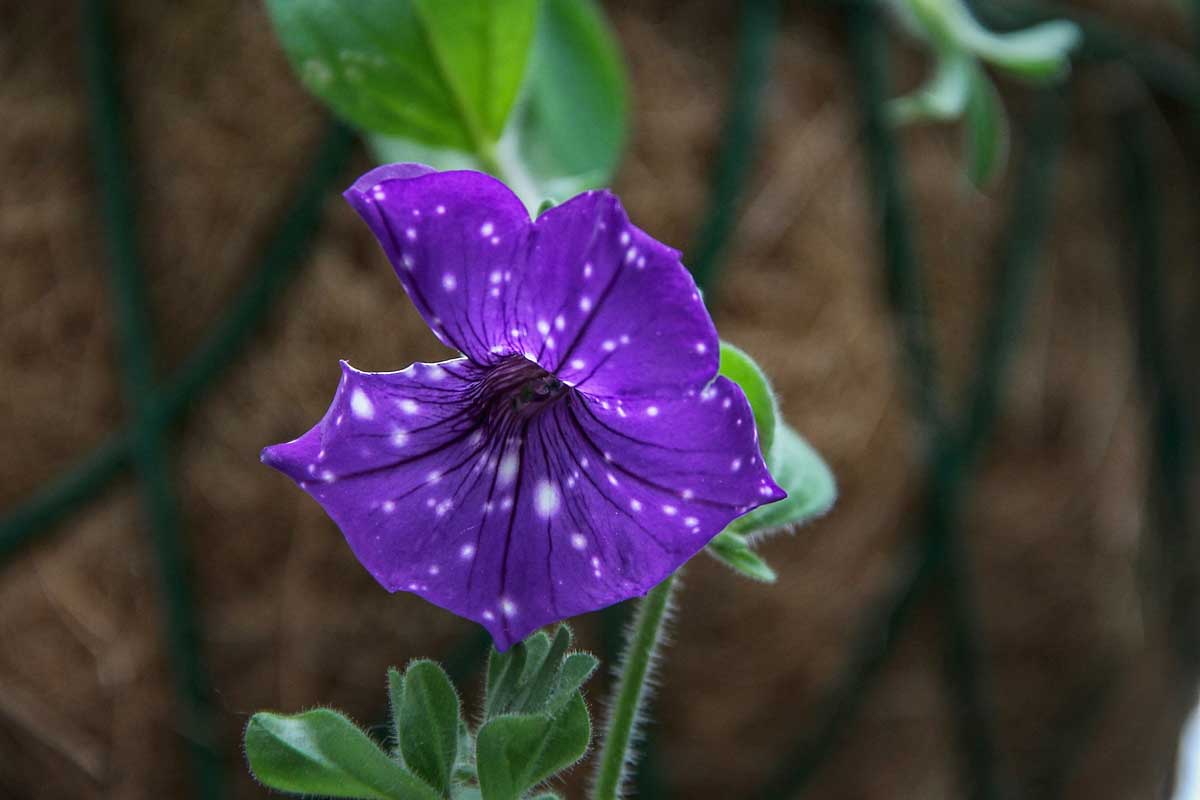
How Do I Stop Slugs Eating My Petunias?
Slugs and snails are a nuisance in a garden. To stop them from eating your petunias, you need to do the following:
- Use a natural insect spray to repel slugs and snails - make sure to read the instructions carefully, as these products can cause leaf-burn if applied incorrectly.
- Set up a beer trap – bury a 1-inch deep container near the petunia plant, just far enough so that the rim is level with the ground and then pour in some stale, flat beer.
- Set up a wet trap – use a wet piece of wood and place it near the petunias in the evening. Come morning, collect and discard any critters you find attached to it.
- Place grapefruit halves in your garden – slice a grapefruit in half, eat the fruit, then place the emptied halves near the petunia plants. Leave them out overnight and you should find plenty of slugs or snails attached to it the next day!
- Scatter eggshells on the ground - break eggshells into small pieces and then toss them in the garden soil near the petunia plants.
- Invite natural predators into your garden – place birdbaths or feeders in your garden, as birds love to feast on slugs and snails!
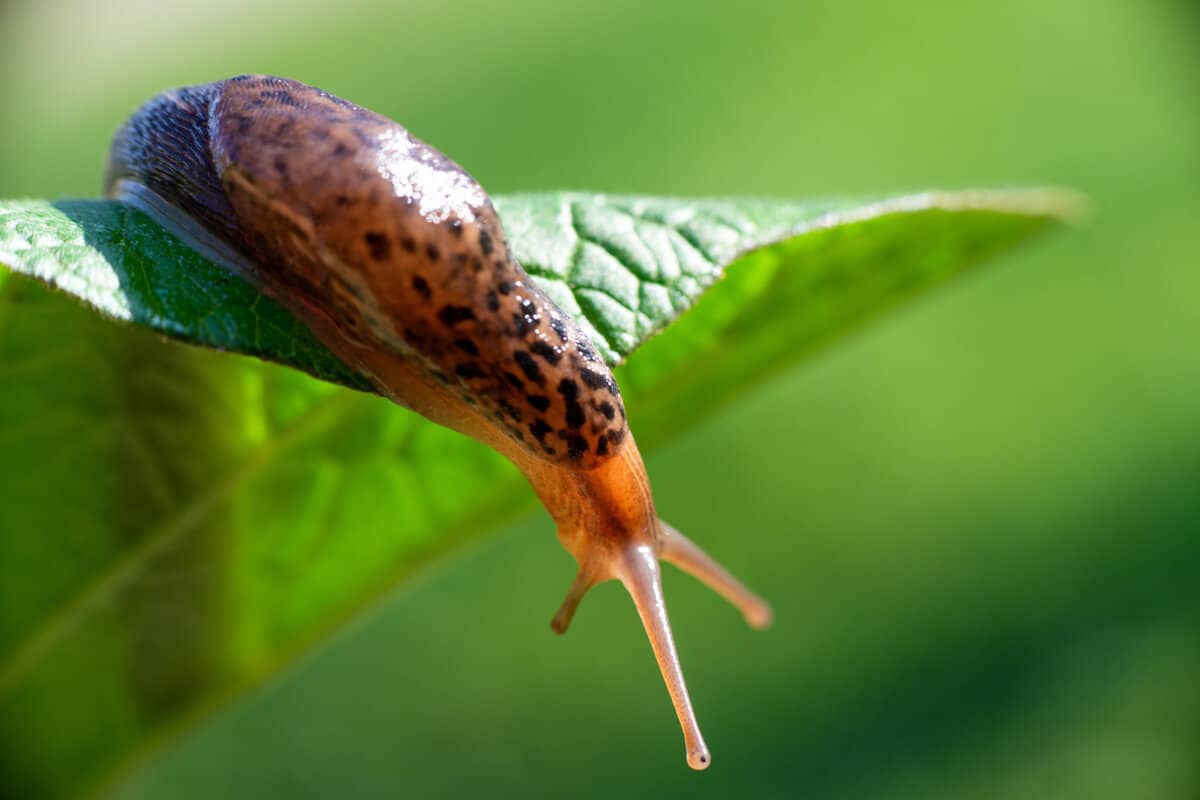
How to Kill Aphids on Petunias?
Aphids are tiny insects that gather on new plant growth. They are often found near the undersides of leaves or near the base of the stem. These creatures will suck the sap from petunias, causing stunted growth, discoloration, and wilted leaves.
There are safe, natural ways to get rid of aphids on your petunia plants. These include the following:
- Begin by blasting the affected plants with a strong stream of water.
- Encourage beneficial insects, such as ladybugs, lacewings, and wasps to visit your garden by growing plants such as vetch, yarrow and tansy or herbs such as mint, fennel or caraway that attract natural aphid predators.
- Avoid commercial pesticides and insecticides, if possible, which can harm the environment and kill not only the aphids but also the beneficial insects.
Insecticidal soap sprays should be used to control serious aphid infestations. They kill on direct contact and are less damaging than store-bought chemical products. Be sure to mist the plant thoroughly, especially on the undersides of leaves and along the stem. Reapply as often as needed, since the sprays are no longer effective once they dry.
How Do You Get Rid of Whiteflies on Petunias?
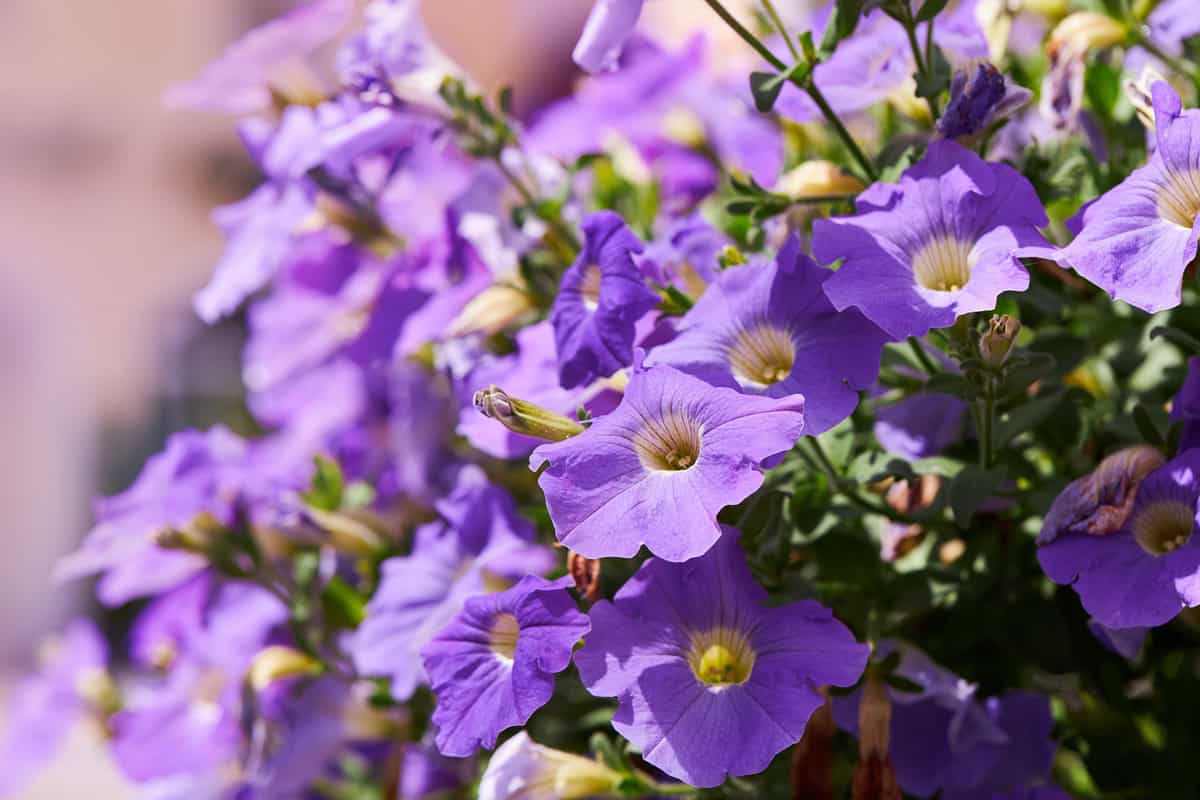
Like aphids, whiteflies will feast on petunias by sucking juices from their leaves, buds, and flowers. This damages the plant, affecting the appearance and health of the blooms and foliage.
To stop this from happening, blast the petunia plants with a strong stream of water from a hose and then water the surrounding area completely to keep the dust down. This not only kills the insects but also helps control pest populations.
How to Get Rid of Petunia Budworms?
An insect known as the petunia budworm (or tobacco budworm) can be devastating to petunias. It bores into buds and blossoms of the plant and eats the leaves and stems. It appears as a caterpillar, growing up to 2 inches long with greenish-yellow lateral stripes along both sides of its body. It emerges in the spring, eating the plant until it matures into a brownish-colored moth, slightly tinged with green.
To rid your petunias of these pests, do the following:
- Handpick and discard the insects from the plant when they emerge at night.
- Drown them in a soapy water solution – cut a trench in the soil approximately 2 or 3 inches from the petunia stems using a trowel and when you see the worms inside the rut, pour the soapy solution of dishwashing liquid mixed with water into it.
- Spray the plant with a ready-to-use insecticide containing Btk, which is a bacteria that occurs naturally in dead or decaying matter found in soil.
What is Eating My Petunias at Night?
Nocturnal critters, such as caterpillars including tobacco bloodworms or variegated cutworms, feed on petunia plants at night. They put holes in the leaves, resulting in foliage that appears wilted and damaged. In high numbers, these insects can deteriorate entire petunia plants in a single growing season! To stop (or prevent) this, see subheading entitled How to Get Rid of Petunia Budworms?
What Animals Eat Petunias?
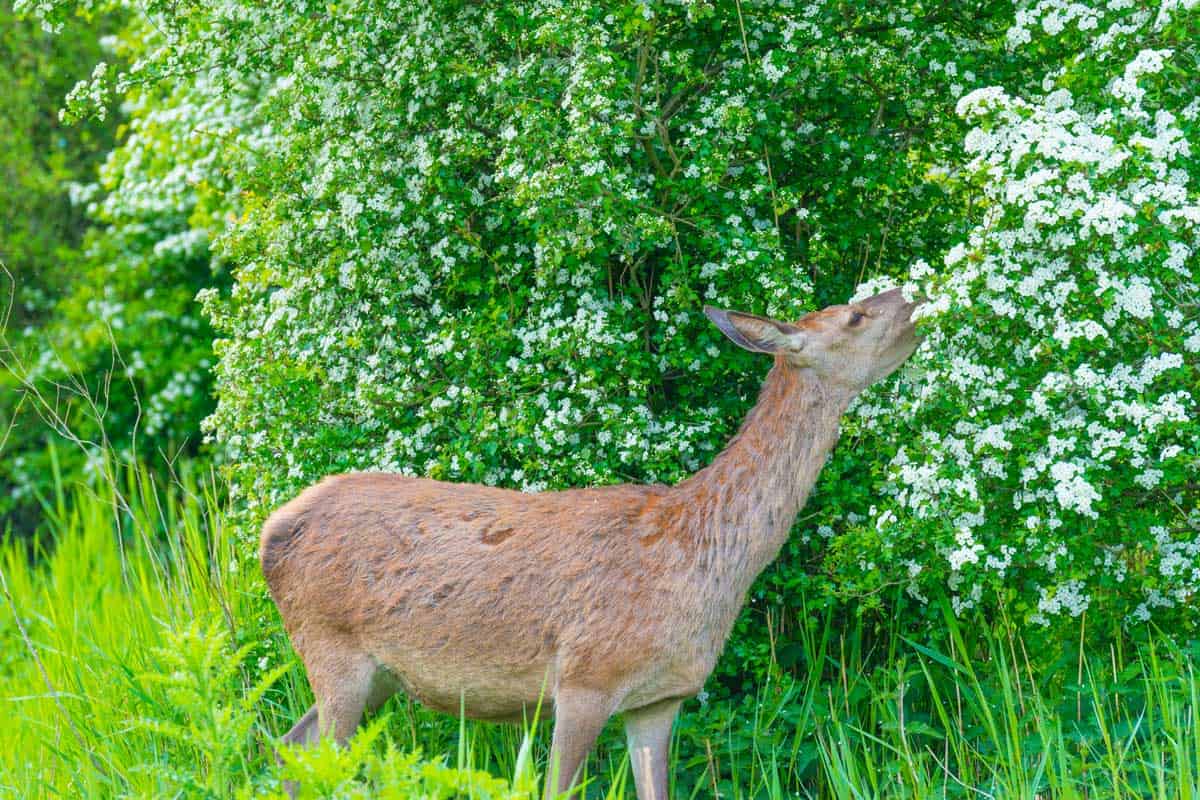
Petunias are a delicacy for many animals, including rabbits and deer. Mules and chickens feast on them as well. Rodents such as mice and squirrels will also eat the plant.
Unless you live in the countryside, mules and chickens are most likely off the list of suspects.
Whatever is eating your petunias, there are some things you can do to protect your plants. Whether rabbits are eating your petunias, chickens are pecking them or deer munch on your flowers, the following home remedies may help -
- Place chicken wire (with a 1-inch diameter or smaller) around the petunia plants, at least 2 feet high and 3 inches deep to deter rabbits and even higher (up to 4 feet) to ward off chickens.
- Remove weeds, high grass, stones, or other debris around the petunias so animals such as rabbits, squirrel, and mice have nowhere to hide.
- Sprinkle chili powder, Cheyenne pepper, or black pepper on and around the petunias, especially when they are wet.
- Pour a small amount of blood meal (a dry powder used as a high-nitrogen organic fertilizer or high-protein animal feed) around the perimeter of the petunia plants.
- Mix 1 tablespoon of dish soap and 1 tablespoon of castor oil with 1 gallon of water and pour the solution over the soil surrounding the petunia plants to deter mice and squirrels.
- Blend 1 raw egg into 2 quarts of water and spray the mixture on the leaves of the petunias to keep deer and mules at bay.
- Plant your petunias off the ground in hanging baskets or window boxes, out of reach from ground-grazing animals.
Not sure what is eating your precious petunias?
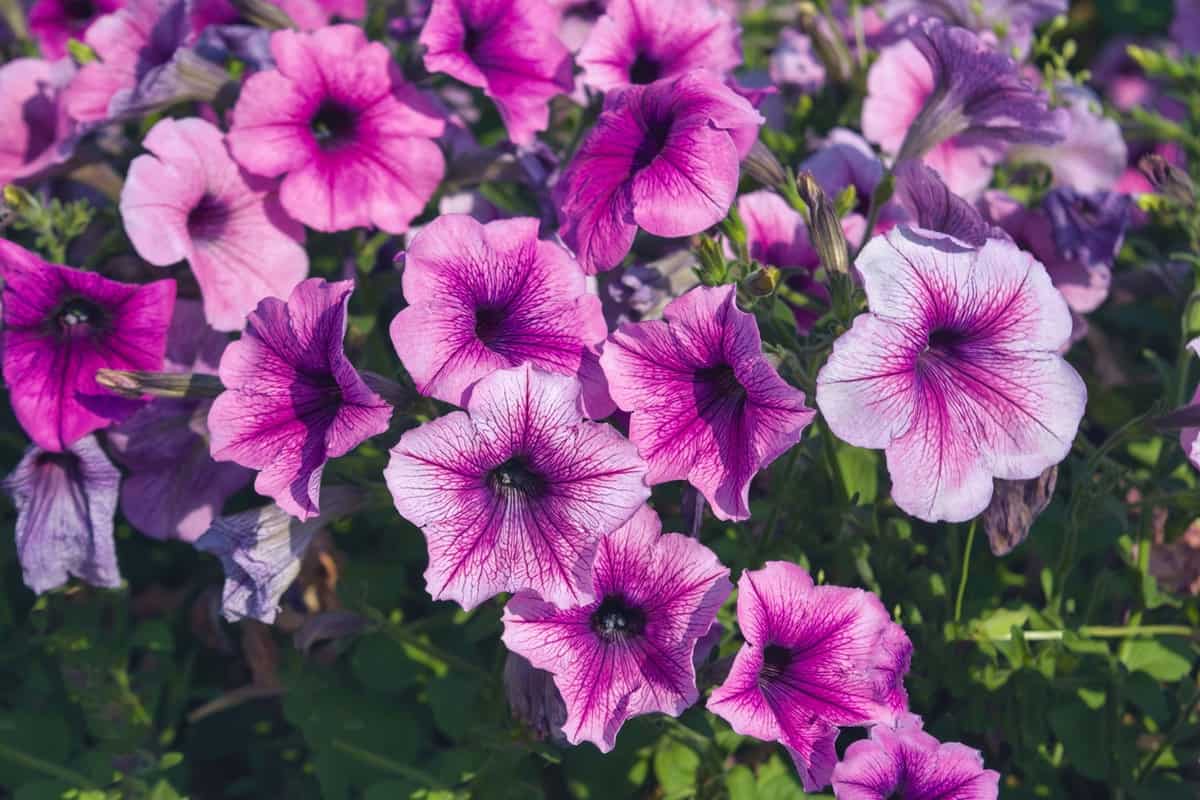
Consider installing a trail cam. These cameras have motion sensors that get the camera to take shots - or videos - when the mystery guests arrive for their late-night snack.
Check out this home security trail camera on Amazon
If rabbits or deer are eating your petunias
There are solutions going beyond home remedies. You can try keeping squirrels, rabbits, and deer from munching on your petunias by spraying them with this kind of repellent -
Check out this deer & rabbit repellent on Amazon
Some people find that placing these rather striking (in a positive way!) cat silhouettes keeps many critters away from their garden -
Careful Pest Control
To summarize, many creatures like to eat petunias, including insects and animals. This can be detrimental to the plant, if not controlled. There are a number of ways to prevent and stop this from happening, many of which are natural and safe for people, pets and the environment. Good luck and happy gardening!
